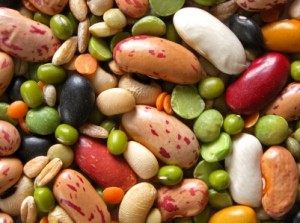
More evidence that low-calorie sweeteners are bad for your health
Studies show that artificial sweeteners can raise the risk of hypertension, metabolic syndrome, type 2 diabetes and heart disease, including stroke.

Natural Health News — Adding pulses to your diet can significantly reduce your risk of metabolic syndrome, especially if you are already overweight.
In this small study from the University of Toronto, published in the British Journal of Nutrition, one group of 19 overweight or obese adults were asked to eat five cups of pulses including yellow peas, chickpeas, navy beans and lentils per day. Another group of 21 overweight or obese adults were given dietary advice to reduce intake of calories by 500 calories per day.
At points throughout the 8-week study researchers measured body weight, waist circumference, fasting blood parameters, blood pressure, blood glucose, cholesterol and 24-h food intake.
At the end of the study period both groups showed reduced energy intake, waist circumference, and better insulin sensitivity, indicating that including more pulses, which are low in energy and high in fibre. In the diet was as effective as calorie restriction .
The researchers found that the pulses diet improved many other biochemical factors and an particularity interesting finding of the study was that HDL (healthy) cholesterol increased by 4.5% in the pulses group but decreases by 0.8% in the calorie restricted group.
A global problem
Metabolic syndrome is an umbrella term for a set of risk factors that includes abdominal obesity,decreased ability to process glucose (increased blood glucose and/or insulin resistance), unhealthy lipid levels (dyslipidemia) and high blood pressure (hypertension). People who have this syndrome have been shown to be at an increased risk of developing cardiovascular disease and/or type 2 diabetes.
The condition affects around 25% of the UK population, 34 % of the US population. Globally around a quarter of the world’s adults are thought to suffer from metabolic syndrome, the roots of which can be traced back to poor eating habits and a sedentary lifestyle.
Evidence for the benefit of pulses grows
This is one of three similar studies into the benefits of pulses to be published recently.
In another from the University of Medical Sciences in Tehran, Iran people in the highest quartile of legume intake were found 75 percent less likely than those whose intake was in the lowest quartile to be diagnosed with metabolic syndrome. The study was published this month in Archives of Iranian Medicine.
A third study also in the British Journal of Nutrition investigated the potential of a pulse-based diet in individuals 50 years or older for reducing cardiovascular disease (CVD) risk factors. A total of 108 men and women were randomised to receive pulse-based foods (two servings daily of beans, chickpeas, peas or lentils; about 150 g per day dry weight) or their regular diet for 2 months. Compared with the regular diet, the pulse-based diet decreased total cholesterol by 8.3% and LDL-cholesterol (LDL-C) by 7.9%, enough say the researchers to lower those people’s risk of CVD.

Please subscribe me to your newsletter mailing list. I have read the
privacy statement